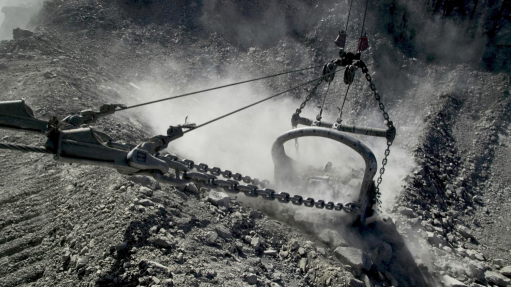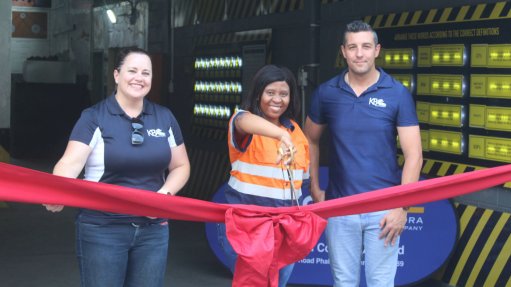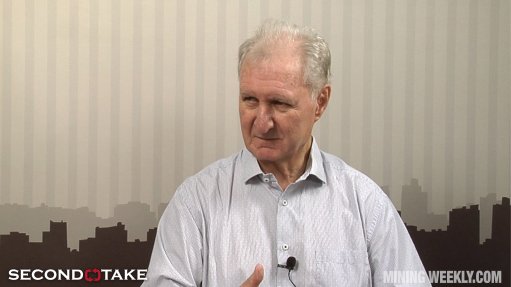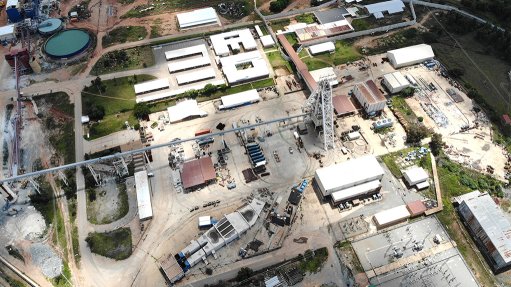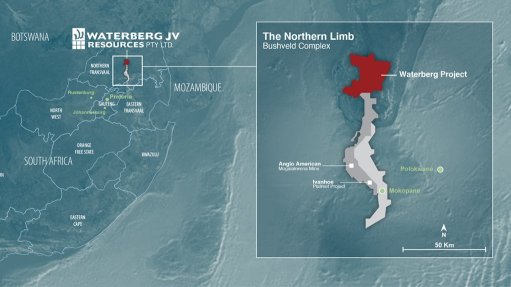Built environment must leverage emerging technologies to mitigate climate change impacts
Climate change is impacting on the built environment and the industry must bolster its efforts to mitigate this, levering emerging technologies, the University of Florida’s Professor Chimay Anumba said in a keynote address on the first day of the WABER & SuDBE conference, held at the University of the Witwatersrand (Wits) in Johannesburg late last month.
Anumba explained that climate change continued to occur and to impact on the built environment, resulting in the need for a more urgent and multifaceted response.
He pointed out that there were technological advances and that emerging technologies offered new capabilities to respond to the changes in climate and to their impact on the built environment.
Anumba averred that, while some efforts were being made by the built environment sector to improve sustainability and resilience, more needed to be done.
He highlighted that a resilient and sustainable future was possible and that this could be achieved through mindful design of the built environment.
Anumba emphasised that the goal should be to bring about a smart, resilient and sustainable built environment.
He outlined emerging technologies as including AI, sensing developments or the Internet of Things, robotics, 5G and 6G communication systems, blockchain, unmanned aerial vehicles or drones and digital twins, among others.
He highlighted that digital twins, backed by AI, offered considerable opportunities for the built environment, having already been successfully used in projects.
These opportunities include using a digital twin to enable real-time energy analysis and decision support, or using urban digital twins to improve the efficiency and effectiveness of data-driven planning and management.
Anumba also emphasised that it was important to understand the landscape and the technologies for benefits to be realised at various scales.
Keynote PresentationsAnumba’s keynote was followed by a panel of keynote presentations on the adaptation of the built environment to climate change and the UN’s Sustainable Development Goals (SDGs).
Wits’ Professor Ron Watermeyer emphasised the importance of effective, responsible and ethical governance in developing infrastructure.
He pointed out that organisations were looking for metrics to measure their progress in transitioning to a circular economy.
Watermeyer emphasised that research needed to feed into organisational policy and practices.
He said research should also focus on influencing policies and practices to improve the decision-making of clients, as well as organisations operating in different contexts within the supply chain which delivered projects.
The University of Cape Town’s Professor Kathy Michell, meanwhile, emphasised the need for active, truly participatory engagement when undertaking sustainable development and management in Africa.
She stressed that this must be inclusionary, safe and resilient, and entail new approaches to property development and management.
Michell also pointed out that, in many developing economies, addressing socioeconomic issues would take precedence over the environmental challenges.
Akenten Appiah-Menka University of Skills Training and Entrepreneurial Development Professor Humphrey Danso outlined the importance of using sustainable building materials that are eco-friendly and have little impact on the environment, given that the building and construction sector was by far the largest emitter of greenhouse gases, accounting for 37% of global emissions, and that the production of construction materials had a considerable carbon footprint.
He explained that the aim of sustainable construction materials was to reduce resource depletion, as well as the cost of buildings, with these aiming to provide environmental, social and economic benefits.
Construction materials account for 50% to 60% of the cost of buildings. Therefore, using sustainable, low-cost materials would assist in making housing more affordable, while also helping the environment, Danso averred.
Comments
Press Office
Announcements
What's On
Subscribe to improve your user experience...
Option 1 (equivalent of R125 a month):
Receive a weekly copy of Creamer Media's Engineering News & Mining Weekly magazine
(print copy for those in South Africa and e-magazine for those outside of South Africa)
Receive daily email newsletters
Access to full search results
Access archive of magazine back copies
Access to Projects in Progress
Access to ONE Research Report of your choice in PDF format
Option 2 (equivalent of R375 a month):
All benefits from Option 1
PLUS
Access to Creamer Media's Research Channel Africa for ALL Research Reports, in PDF format, on various industrial and mining sectors
including Electricity; Water; Energy Transition; Hydrogen; Roads, Rail and Ports; Coal; Gold; Platinum; Battery Metals; etc.
Already a subscriber?
Forgotten your password?
Receive weekly copy of Creamer Media's Engineering News & Mining Weekly magazine (print copy for those in South Africa and e-magazine for those outside of South Africa)
➕
Recieve daily email newsletters
➕
Access to full search results
➕
Access archive of magazine back copies
➕
Access to Projects in Progress
➕
Access to ONE Research Report of your choice in PDF format
RESEARCH CHANNEL AFRICA
R4500 (equivalent of R375 a month)
SUBSCRIBEAll benefits from Option 1
➕
Access to Creamer Media's Research Channel Africa for ALL Research Reports on various industrial and mining sectors, in PDF format, including on:
Electricity
➕
Water
➕
Energy Transition
➕
Hydrogen
➕
Roads, Rail and Ports
➕
Coal
➕
Gold
➕
Platinum
➕
Battery Metals
➕
etc.
Receive all benefits from Option 1 or Option 2 delivered to numerous people at your company
➕
Multiple User names and Passwords for simultaneous log-ins
➕
Intranet integration access to all in your organisation






